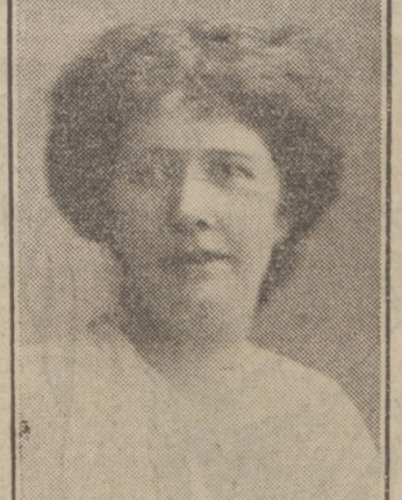

Elizabeth Swann was an active and devoted champion of liberal and progressive causes alongside her husband, Liberal MP Charles Swann. Both were early ethical society members, and Elizabeth presided over the first Annual Congress of the Union of Ethical Societies (now Humanists UK) in 1896. Like many others in the Ethical movement, she was a passionate advocate of women’s suffrage, as well as of trade unionism, Irish home rule, and humane social reform.
Elizabeth Swann was born Elizabeth Duncan in Manchester, the third daughter of Irish-born David Duncan, a linen merchant, and Sarah Anne Duncan (née Cooke). She married Charles Ernest Schwann (1844-1929) in Altrincham, Cheshire in 1877. The couple had four sons and a daughter: Charles, Harold, Lawrence, Jeffrey, and Elizabeth.
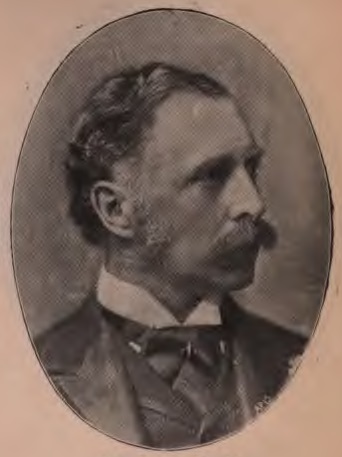
In 1897, Swann was elected a member of The Aristotelian Society, a prestigious philosophical society established in Bloomsbury in 1880. In 1899, alongside another early ethical society member Florence Routledge, she was on the hospitality sub-committee of the International Congress of Women.
Described as ‘full of enthusiasm for good causes’, Swann was active in a wide variety of progressive movements, particularly in aid of the rights of women, workers, and Irish subjects. Swann was the first Honorary Secretary of the Manchester and Salford Women’s Trade Union Council, established in 1895. In the same year, she was a prominent member of the Association for the Compulsory Registration of Midwives (established in 1893), which petitioned for a bill to regulate the practice of midwifery. The Midwives Act came into force in 1902, but Swann and the Association continued to campaign for widened access to the profession, and to its practitioners, particularly for the working class. In 1904, Swann was signatory to an open letter requesting financial support for the training of midwives working from, and working with, women of the working class. The association aimed:
to assist, by means of loans, grants, and free training, the education of the midwives whose services are so urgently demanded by the law and for public safety.
Swann was also actively involved in the Women’s Liberal Federation, presiding over its conference in 1899, and acting as President of its Manchester branch. She was spoken of with particular fondness by citizens from her home county of Lancashire, where she was described as entering ‘with exceptional ardour into all movements that concerned the welfare of the district.’
Elizabeth Swann died at home in London on 13 April 1914.
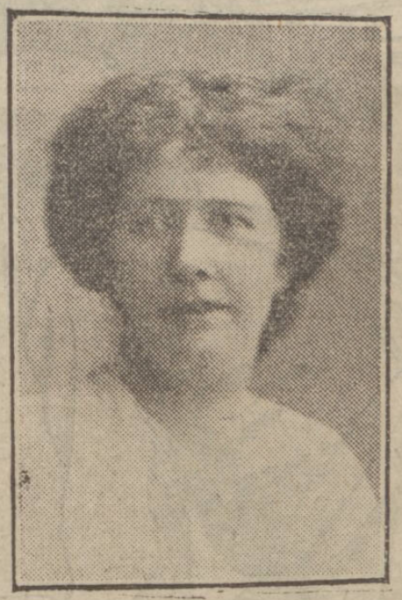
As chair of Humanists UK’s first ever annual congress, the significant position occupied by Elizabeth Swann, and the high regard in which she was held by her colleagues in the Ethical movement, is evident. She illustrates not only the active humanism of many women during the late 19th century, but their all too frequent relegation to history’s footnotes. Swann was not merely a loyal companion to her husband in his political efforts and ethical society membership: she was a powerful force for progressive reform in her own right. An advocate of workers’ and women’s rights, a respected philosophical thinker, and a founding figure of the Union of Ethical Societies, Elizabeth Swann’s name should be firmly logged in any history of organised humanism.
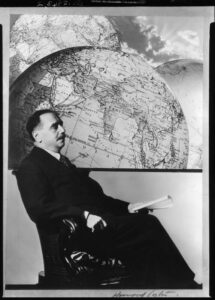
The Progressive League was an organisation dedicated to the advancement of scientific humanism, founded by author H.G. Wells and philosopher […]
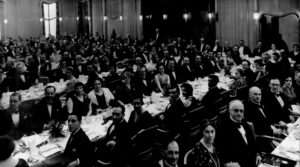
The Rationalist Press Association (later known as simply the Rationalist Association) had its origins in the London print works of […]
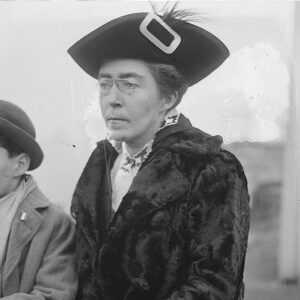
Hanna Sheehy-Skeffington was an activist, feminist, and humanist, who founded the Irish Women’s Franchise League, and was described by the […]
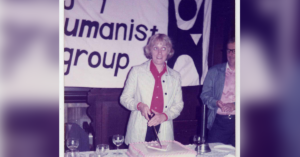
‘Separate Development? Out of the closet, into the ghetto’ was a talk given by writer and activist Maureen Duffy on […]